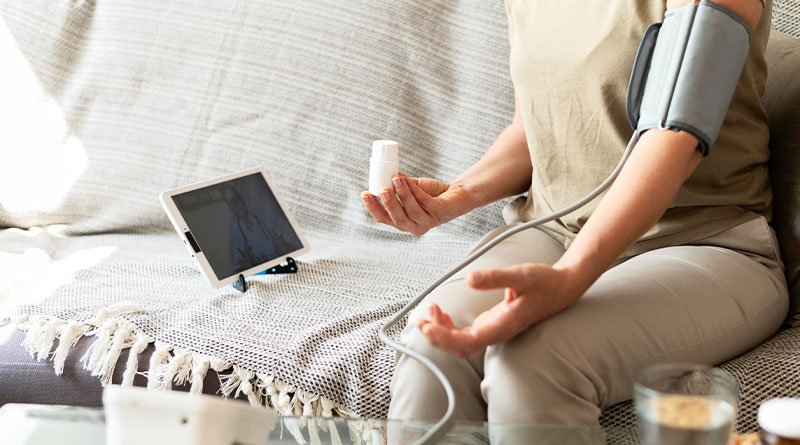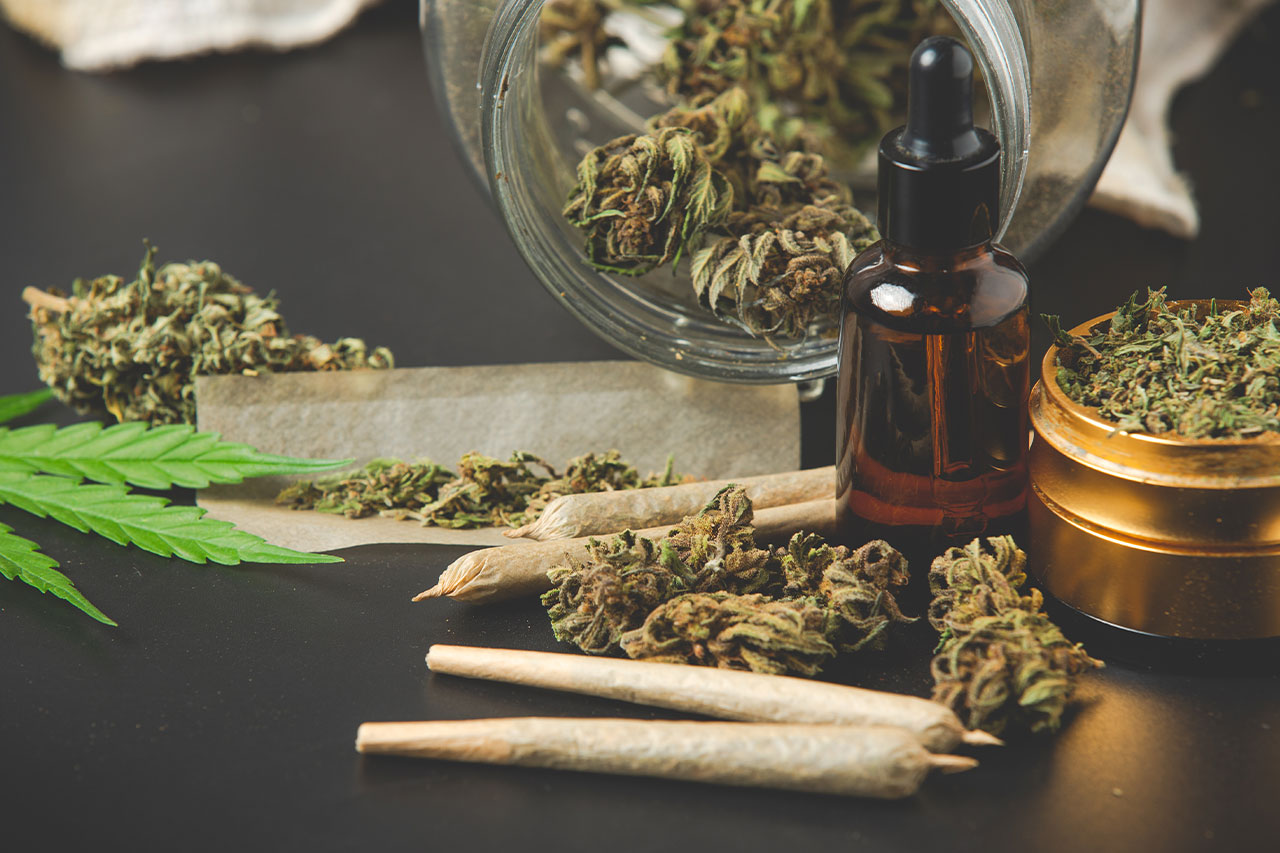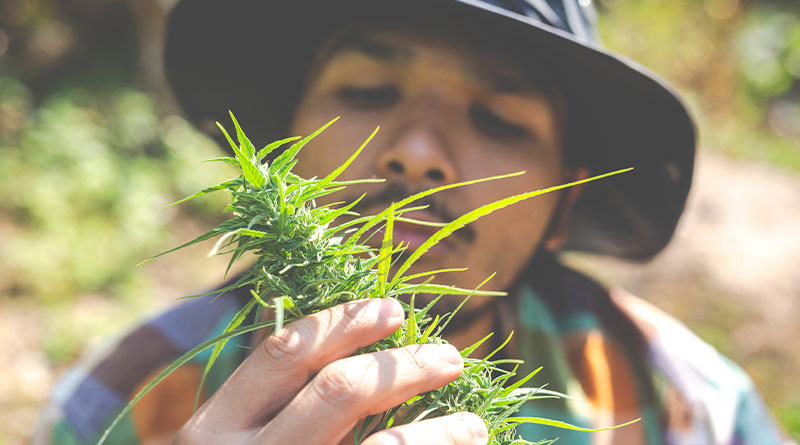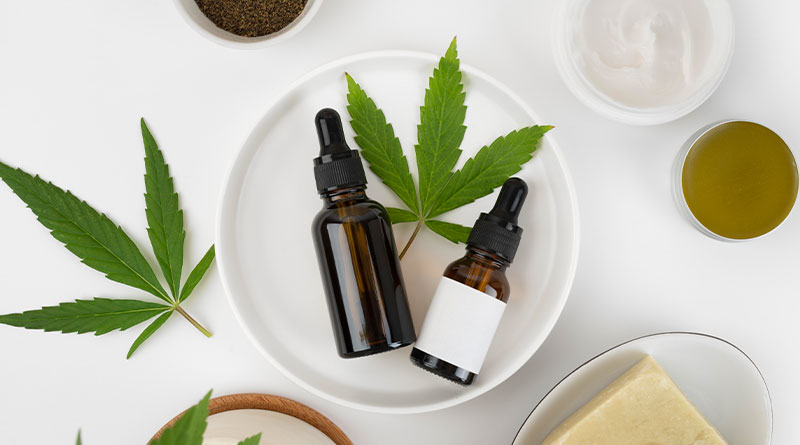According to a study published in Hypertension, having high blood pressure raises your risk of stroke by 25% to 50%. Prescription drugs, nutrition, and exercise are just some of the pharmaceutical interventions and natural techniques that may help patients maintain stable blood pressure levels, which is crucial for general health.
Research on the effects of CBD for Blood Pressure is limited, but growing evidence suggests it may have several health advantages, including pain reduction and anxiety relief. What impact, if any, does CBD have on controlling blood pressure?
Read on to find out what the science and experts have to say.
How Do You Define High Blood Pressure?
Blood pressure is the force of blood pushing against an artery wall. While fluctuations in blood pressure during the day are expected, chronically high readings cause concern.
Most cases of hypertension are due to primary causes. It comes on slowly but can be more severe than secondary hypertension, which can occur suddenly due to genetics, physical changes, or excess weight. Kidney illness, congenital cardiac defects, thyroid disorders, alcohol consumption, and use of some drugs and stimulants like cocaine and amphetamines are also potential triggers.
Hypertension is a disorder that can progress without showing any signs until it has reached a severe stage. When this happens, you may experience the following symptoms: dizziness, chest pain, flushing, changes in eyesight, blood in the urine, and shortness of breath. If these symptoms persist, medical attention should be sought right away.
What is CBD?
Cannabidiol (CBD) is an organic compound discovered in the marijuana plant. Compared to tetrahydrocannabinol (THC), it cannot induce intoxication or a “high.” Instead, researchers are interested in CBD’s possible medical applications. Pain, insomnia, anxiety, and even addiction are all potential benefits.
Full-spectrum CBD, broad-spectrum CBD, and CBD isolate are all forms of this compound that may be purchased online.
Broad-spectrum and full-spectrum include cannabinoids, terpenes, and flavonoids, while full-spectrum contains other plant components. Only CBD has any trace of THC (often less than 0.3%).
Isolated CBD is simply CBD by itself. Any CBD product may have undetectable THC levels that could appear on a drug test.
Among the many uses for these three CBD varieties are:
- Tinctures and oils: CBD oil has been added to these beverages. They can be taken sublingually or mixed into liquids.
- Edibles: Cannabidiol (CBD) is increasingly being used in edibles and beverages. Because of their concealability and disability, edibles have quickly become one of the most popular forms of cannabis consumption.
- Capsules: You can take CBD in the form of a tablet or capsule.
- Topicals: When administered topically, CBD has a direct effect on the skin.
- Vaporizer liquids: These items are made specifically for use with a vape pen. You’ll feel the effects quickly, although there have been stories of vaping causing lung damage. We don’t know if the same concerns apply to vaping CBD.
How Does CBD Work
CBD communicates with the endocannabinoid system (ECS), a vast physiological network regulating various functions.
The ECS consists of three parts that we know of so far. However, our knowledge is continually developing:
- Endocannabinoids, naturally occurring cannabinoid compounds
- CB1 and CB2 receptors, the two primary endocannabinoid receptors, are present all over the body
- Enzymes degrade endocannabinoids once they have served their purpose.
Researchers currently think that homeostasis maintenance is the major function of the ECS. The ECS has connections to many physiological functions, such as appetite and digestion; metabolism; pain; mood; sleep; motor control; and so on.
Cannabinoids, such as THC and CBD, connect to ECS receptors in the same way as endocannabinoids do.
Researchers have a better idea of how THC interacts with the ECS because of its ability to bind to both CB1 and CB2 receptors. According to one idea, CBD may increase the effectiveness of endocannabinoids by blocking their degradation. There’s also the possibility that CBD interacts with a receptor we have yet to discover.
Combinations of THC and CBD, as well as the other chemicals found in cannabis, were more beneficial than each cannabinoid used alone in a study conducted in 2011. Some claim that full-spectrum CBD is more effective than broad-spectrum or isolate because of a phenomenon known as the “entourage effect.”
Is CBD for Blood Pressure Helpful?
While there is some indication that CBD for Blood Pressure is good, the research is mixed.
One dose of CBD reduced resting and stress-induced blood pressure in nine healthy male volunteers, according to research published in 2017.
CBD considerably mitigated the elevations in blood pressure and heart rate that were brought on by stress in another 2017 investigation involving mice.
However, despite CBD’s antioxidant properties, a 2020 rat study found that it failed to reduce blood pressure. The results of another research scheduled for 2020 are more encouraging, showing that CBD can lower blood pressure in anxious people.
Although CBD has been shown to have some therapeutic effects for cardiovascular problems, more research is needed to determine its exact role.
What Kind of Cbd For Blood Pressure is Recommended?
Although CBD is available in many different formats, those with hypertension may find that oil or tincture works best. Bioavailability, the rate at which a drug is absorbed and put to use, is typically greater with oils.
The action of sublingual products is systemic as well.
How Soon Does Cbd Begin To Bring Down Blood Pressure?
The degree to which CBD reduces blood pressure may vary from person to person. Studies have shown CBD reduces systolic and diastolic blood pressure by an average of 5-10 mmHg.
It’s worth noting that CBD’s blood pressure-lowering effects don’t kick in right away but rather may take several weeks to manifest.
How Long Before I See My Blood Pressure Drop After Using Cbd For Blood Pressure?
CBD has been proven to lower systolic and diastolic blood pressure, two measures of cardiovascular health, in people with hypertension. CBD’s blood pressure-lowering effects may only be felt after 5-30 minutes.
The precise duration, however, can change from person to person.
Conclusion
Consult your primary care physician or cardiologist if you have any concerns or questions about taking CBD to treat high blood pressure; they can advise you on any dangers involved and suggest alternate treatments, including adjustments to your diet and exercise routine, that may be more effective.
Discuss your interest in CBD for blood pressure with your doctor to receive tailored recommendations.
FAQs
Q1: Can CBD reduce hypertension?
Ans: While cannabidiol (CBD) may help reduce blood pressure in some people, it has potential negative effects. You may experience things like lethargy, nausea, anger, and a loss of appetite. If you want to use CBD for Blood Pressure, you should consult your doctor first to be sure it’s safe for you.
Q2: Can CBD clear up clogged arteries?
Ans: Animal studies have revealed that CBD has the potential to decrease inflammation and increase vasorelaxation (the widening of arteries to increase blood flow).
Q3: Is CBD blood thinner?
Ans: CBD competes with the liver enzymes responsible for breaking down blood-thinning and other medications, which can lead to a higher blood concentration of these pharmaceuticals. Certain drugs interact similarly with grapefruit. Intense CBD use has been linked to abnormal liver function tests.
Sahil Sachdeva is the Founder of curemedoc.com and a Digital Marketing professional with 6+ years of experience. If you need help in Content writing and want to increase your website ranking, connect with him, as he has some premium websites where you can share blogs with DoFollow links and increase your website’s ranking on Google.





